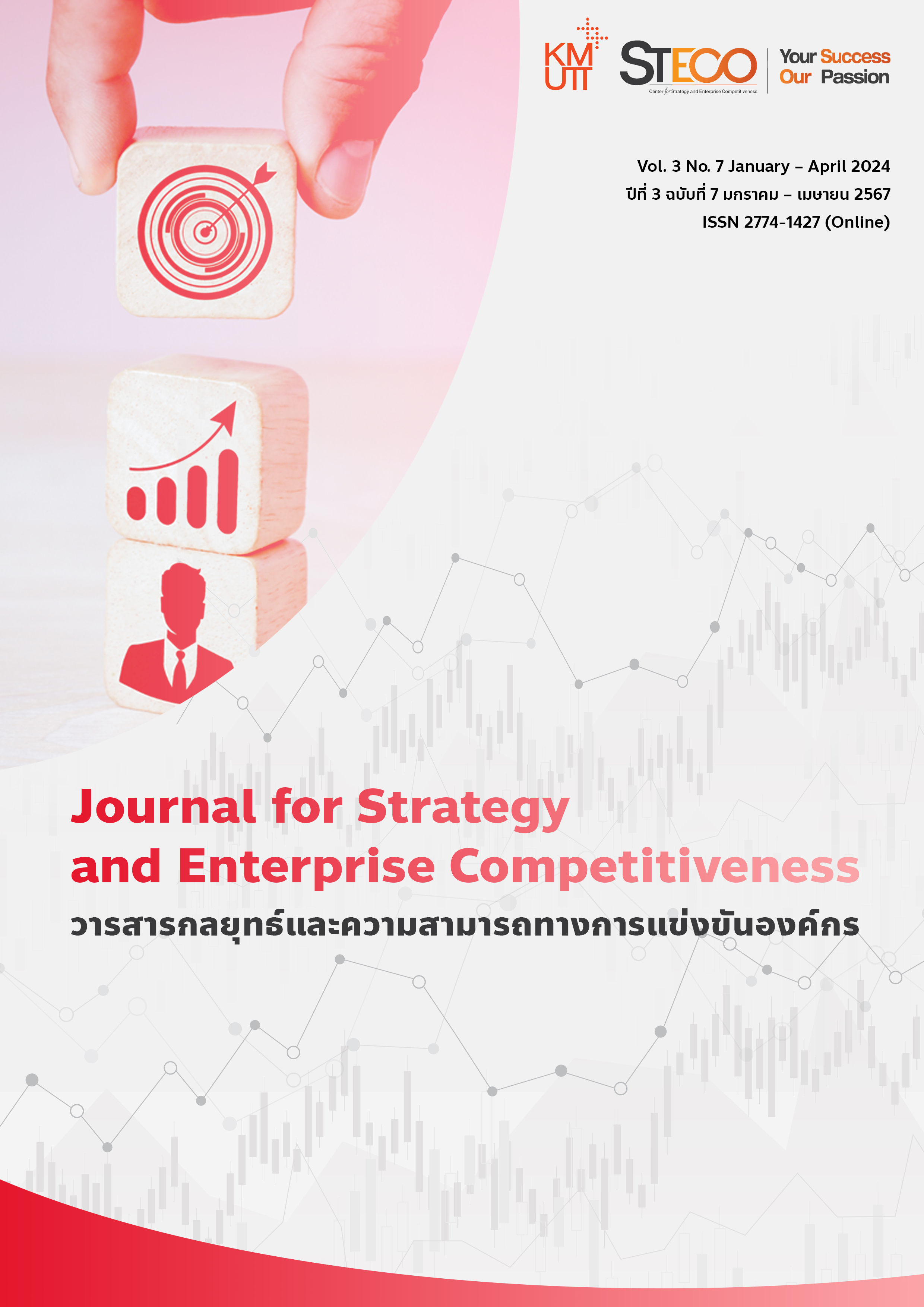Compensation and commitment: exploring the impact among early career staff in a University of Science & Engineering
Keywords:
employee compensation, organizational commitment, early career staffAbstract
This research investigates the impact of compensation on organizational commitment among early career staff at Sichuan University of Science & Engineering, China. Employing quantitative research methods using survey methods using non-probability sampling by purposive sampling. a survey method, 306 samples were conveniently drawn from a pool of 1,500 faculties. Through descriptive and inferential statistics using mean, standard deviation, correlation, and regression analyses, the research reveals significant impacts of salary, bonuses, and perks on organizational commitment. The findings underscore the importance of compensation packages in fostering employee commitment within academic institutions. It shows that respondents were satisfied with the salary, neutral toward bonus payment, and satisfied with amount of perk received. It also indicates a generally positive sentiment among respondents towards their organizational commitment. The regression result reveals the relationship between employee compensation (salary, bonus, perks and benefits) and organizational commitment demonstrate a highly significant and positive association. This research contributes to understanding the dynamics of employee engagement and retention in higher education settings.
References
Aaker, D. A., Kumar, V., and Day, G. S. (2001). Marketing Research, New York: John Wiley&Sons. Inc.
Allen, N. J., and Meyer, J. P. (1990). The measurement and antecedents of affective, continuance and normative commitment to the organization. Journal of Occupational Psychology, 63(1), 1–18. https://doi.org/10.1111/j.2044-8325.1990.tb00506.x
Fulmer, I. S., Gerhart, B., and Kim, J. H. (2023). Compensation and performance: A review and recommendations for the future. Personnel Psychology, 76(2), 687-718. https://doi.org/10.1111/peps.12583
Gan, W. (2022). Research on the problems and countermeasures in the performance management of state-owned enterprises under the background of digital transformation and upgrading-taking Z company as an example. Journal of MCU Ubon Review, 7(3), 441-450.
Hair, J. F., Black, W. C., Babin, B. J., and Anderson, R. E. (2009). Multivariate data analysis (7th Edition). United States: Prentice-Hall.
Hao, Y., and Zhong, Y. (2018). The Job Satisfaction of Private School Teachers in Compulsory Education and Its Influencing Factors in China Empirical Research Based on PISA (2015) China Data. In 5th International Conference on Education, Language, Art and Inter-cultural Communication (ICELAIC 2018), 188-193. Atlantis Press.
Hedayat, A., Sogolitappeh, F. N., Shakeri, R., Abasifard, M., & Khaledian, M. (2018). Relationship between organizational commitment and job satisfaction. International Letters of Social and Humanistic Sciences, 81, 30-38. https://ssrn.com/abstract=3195134
Khaliq Alvi, A., Lashari, R. H., UR Rehman, S., Kaur, P., and Jawaid, A. (2019). The impact of organizational justice on organizational performance in view point of employee voice. European Online Journal of Natural and Social Sciences, 8(4), 624-641. https://european-science.com/eojnss/article/view/5913
Li, S., and Chen, Y. (2018). The relationship between psychological contract breach and employees’ counterproductive work behaviors: the mediating effect of organizational cynicism and work alienation. Frontiers in psychology, 9, 377154. https://doi.org/10.3389/fpsyg.2018.01273
Lu, W., Saka-Helmhout, A., and Piekkari, R. (2019). Adaptation of compensation practice in China: The role of sub-national institutions. Management and Organization Review, 15(2), 235-267. https://doi.org/10.1017/mor.2019.16
Malhotra, V., and Mehta, K. P. (2021). A study on the effectiveness of competitive compensation packages to attract and retain top talent. International Journal for Research in Engineering Application & Management, 07(2), 237-244. https://doi.org/10.35291/2454-9150.2021.0235
Meyer, J. P., Stanley, D. J., Herscovitch, L., and Topolnytsky, L. (2002). Affective, continuance, and normative commitment to the organization: A meta-analysis of antecedents, correlates, and consequences. Journal of vocational behavior, 61(1), 20-52. https://doi.org/10.1006/jvbe.2001.1842
Milkovich, G. T., and Newman, j. M. (2002). Compensation (7th Edition). New York: McGraw-Hill.
Mok, K. H., and Han, X. (2017). Higher education governance and policy in China: Managing decentralization and transnationalism. Policy and Society, 36(1), 34-48.
Rhoades, L., and Eisenberger, R. (2002). Perceived organizational support: a review of the literature. Journal of applied psychology, 87(4), 698.
Sharma, A. and Sharma, A. (2021) Beyond Exchange Relationship: Exploring the Link Between Organizational Justice, Job Involvement, and Citizenship Behavior. Behavioral Science, 16(3), 123-135.
Zhang, Q. (2020). Study on employee compensation satisfaction in HX Shipping School. Thesis, Shandong University.
Zhou, H., and Ma, J. (2022). Organizational Justice and Teachers’ Turnover Intention in Primary and Secondary Schools: The Importance of Sustainable Salary Management. Sustainability, 14(20), 13314. https://doi.org/10.3390/su142013314
Zhou, Y. (2012). Research on the insufficient salary incentive of college teachers and its countermeasures-Take Guangxi University as an example. Thesis, Guangxi University.

Downloads
Published
How to Cite
Issue
Section
License
Copyright (c) 2024 Journal for Strategy and Enterprise Competitiveness

This work is licensed under a Creative Commons Attribution-NonCommercial-NoDerivatives 4.0 International License.
The opinions appearing in the content of articles of Journal for strategy and enterprise competitiveness. It is the opinion and responsibility of the article author. It is not the opinion and responsibility of the Center for strategy and enterprise competitiveness, King Mongkut's University of Technology Thonburi
Articles, information, content and images, etc., in the Journal for strategy and enterprise competitiveness. It is the exclusive copyright of the Center for strategy and enterprise competitiveness, King Mongkut's University of Technology Thonburi. If an individual or entity wants to distribute all or part of the content or for any action must obtain written permission from the Center for Strategy and enterprise Competitiveness, King Mongkut's University of Technology Thonburi.


